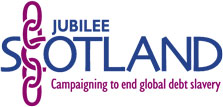

MORE ABOUT CUT THE STRINGS
|
LEARN MORE ABOUT CUT THE STRINGS!
1. PRIVATISATION One of the problems being faced by the very poorest people in the country is the demand by the IMF, that in exchange for receiving HIPC debt relief, the Dar es Salaam Water and Sewerage Authority (DAWASA) would be privatised. The worry is that if these services are privatised this will mean that water will be unavailable to those who cannot afford it Private companies are only interested in such a move if they think they can make money from it and one wonders how far down their list of priorities will lie the people of Tanzania. Meanwhile the Government is fully supportive of the privatisation as they have supported over 300 other such schemes. We now know that the UK company who won the bid Biwater, has seen their scheme collapse amid claims that they have failed to improve the supply for millions of people. No new pipes were laid, they had not spent the money they had promised and the quality of the water was worse rather than better. This fiasco was paid in part by aid money from
the UK. Is this the way you agreed that the UK could spend your
money when you hoped that they were helping the poorest people in
Africa? I think not. I didn't expect them to give £250,000
to the right wing Adam Smith Institute to promote privatisation.
The cruellest twist is that Biwater are now suing the Tanzanian
Government for breaking the contract. 2. TRADE LIBERALISATION In a report published last year, (The Economics
of Failure. The Real Cost of "free" trade for poor countries)
Christian Aid has highlighted the fact that Ghana lost over US$10b
in the first 15 years after liberalisation. Quite a sum when you
consider that their average annual income is only $330 per person.
3. CUTS IN SOCIAL
SPENDING CLICK HERE TO FIND OUT REASONS WHY WE MUST CUT THE STRINGS!
|
© 2006 Jubilee Scotland
Last modified 01-Mar-2006